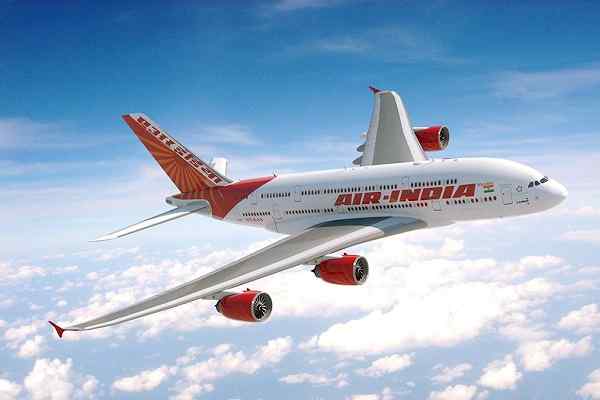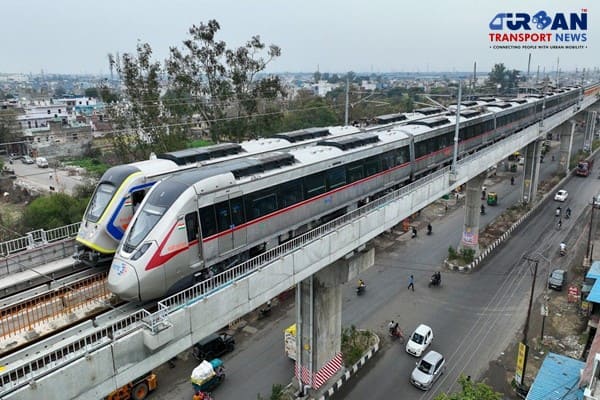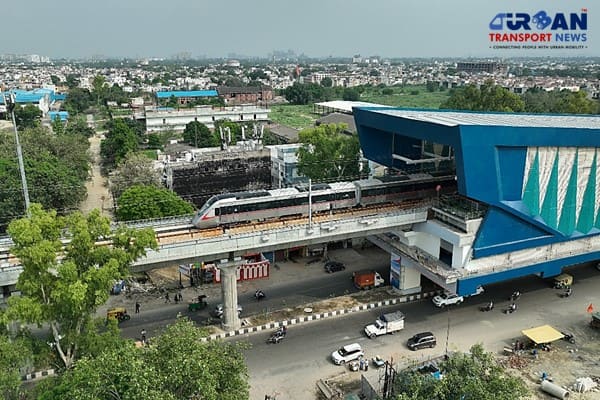 Wage and Hour Enforcement Under the Massachusetts Wage Act and Connecticut Labor Standards
Wage and Hour Enforcement Under the Massachusetts Wage Act and Connecticut Labor Standards MRT‑7: Manila’s Northern Metro Lifeline on the Horizon
MRT‑7: Manila’s Northern Metro Lifeline on the Horizon Delhi unveils ambitious Urban Mobility Vision: Luxury Metro Coaches, New Tunnels and Pod Taxi
Delhi unveils ambitious Urban Mobility Vision: Luxury Metro Coaches, New Tunnels and Pod Taxi Qatar approves Saudi Rail Link Agreement, Accelerating Gulf Railway Vision 2030
Qatar approves Saudi Rail Link Agreement, Accelerating Gulf Railway Vision 2030 UP Govt plans to introduce Water Metro services in Ayodhya, Varanasi & Prayagraj
UP Govt plans to introduce Water Metro services in Ayodhya, Varanasi & Prayagraj India’s First Urban Ropeway begins Trial Run in Varanasi, Set to carry 1 Lakh passengers daily
India’s First Urban Ropeway begins Trial Run in Varanasi, Set to carry 1 Lakh passengers daily India and Bhutan to Build First-Ever Rail Link: ₹4,033 Cr Project to Boost Regional Connectivity
India and Bhutan to Build First-Ever Rail Link: ₹4,033 Cr Project to Boost Regional Connectivity Patna to launch Eco-Friendly Water Metro; Trial Run soon between Digha and Kangan Ghats
Patna to launch Eco-Friendly Water Metro; Trial Run soon between Digha and Kangan Ghats Air India Group set to launch Flights Operations from Navi Mumbai International Airport
Air India Group set to launch Flights Operations from Navi Mumbai International Airport Chennai to launch 25-Year Mobility Plan with Unified QR Ticketing and One-App Transit System
Chennai to launch 25-Year Mobility Plan with Unified QR Ticketing and One-App Transit System
Afcons Infra wins Rs 1062 crore civil contract of Delhi-Meerut RRTS project

New Delhi, India (Urban Transport News): The National Capital Region Transport Corporation Limited (NCRTC) on 1st September 2020 opened the financial bids of civil contract package 6 of the Delhi-Meerut RRTS project which was floated for the construction of 4.3 km stretch between Sarai Kale Khan – New Ashok Nagar.
As per the financial bid result announced by NCRTC, Indian major infrastructure firm Afcons Infrastructure Limited emerged as the lowest bidder (L1) among the other four contenders. The financial position of all participants/bidders are as under:
- Afcons Infrastructure Limited: Rs 1,061.71 crore (L1)
- Dilip Buildcon – Sam (India) Builtwell JV: Rs 1,118.25 crore (L2)
- Larsen & Toubro (L&T) Limited: Rs 1,125.18 crore (L3)
- Tata Projects Limited: Rs 1,174.46 crore (L4)
- GR Infraprojects Limited: Rs 1,197.15 crore (L5)
The tender (DM/CN/COR-OF/095) was notified in February and the technical bids were opened in June 2020. The estimated value of this contract was Rs 1,112 crores.
The scope of work includes the construction of an elevated viaduct from Sarai Kale Khan station to New Ashok Nagar DN Ramp including the Jangpura Entry ramp and two Nos. of elevated stations viz., Sarai Kale Khan & New Ashok Nagar [including Pre-engineered steel roof structure but excluding Architectural Finishing of Stations] of Delhi – Meerut Regional Rapid Transit System (RRTS) Corridor.
As per the tender notice, the work is expected to be completed in 30 months.







